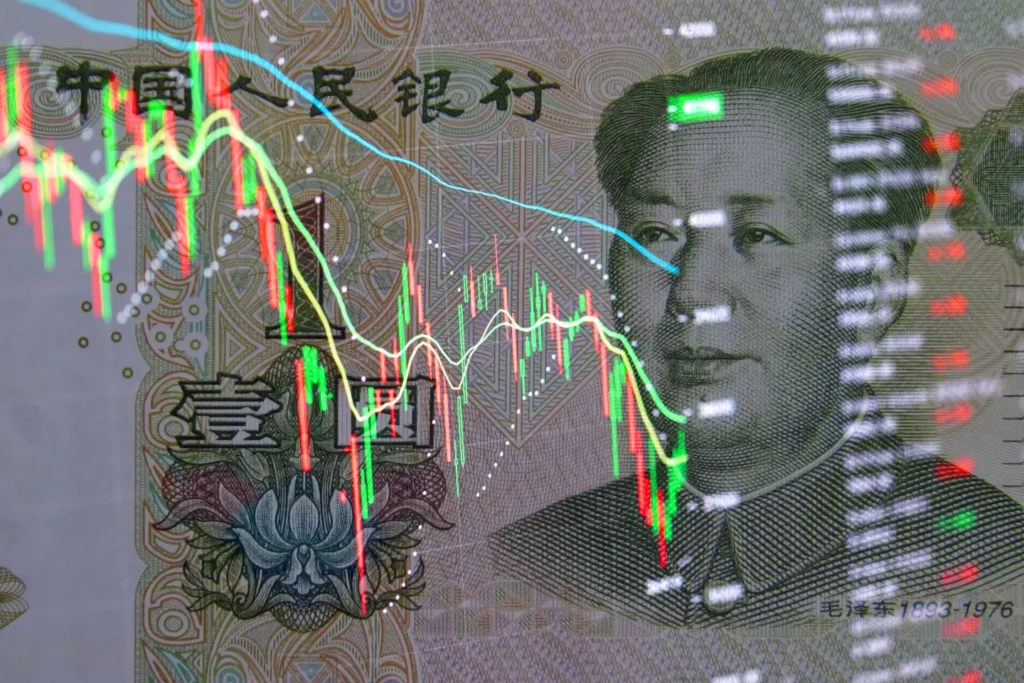
As China’s economy shows signs of slowing down, a growing number of foreign companies are reconsidering their investments. Concerns over weakening growth, regulatory unpredictability, and geopolitical tensions are prompting these companies to pull out their funds. The once-booming market now faces challenges such as reduced consumer spending and supply chain disruptions. As a result, businesses are redirecting their investments to more stable and promising markets, seeking to mitigate risks and sustain profitability amidst China’s economic uncertainties. This shift underscores the broader impact of China’s economic deceleration on global business strategies.
Last quarter, foreign companies pulled more money out of China, indicating ongoing skepticism about the country’s economic prospects despite efforts by Beijing to stabilize growth with stimulus measures. Data from the State Administration of Foreign Exchange, released on November 8, revealed that China’s direct investment liabilities in its balance of payments dropped by US$8.1 billion (S$10.8 billion) in the third quarter. Over the first nine months of the year, the figure fell by nearly US$13 billion, underscoring the persistent decline in foreign direct investment (FDI) in China. This trend highlights the challenges the Chinese government faces in restoring investor confidence.
Over the past three years, foreign direct investment (FDI) in China has been declining, resulting in record low balances of payment and direct investment liabilities each quarter. This trend is driven by a combination of factors, including economic slowdown, regulatory uncertainties, and rising geopolitical tensions. Consequently, many international investors are reassessing their financial commitments in the Chinese market, opting for more stable and predictable environments. This shift has significant implications for China’s economic landscape, potentially undermining its long-term growth prospects and reducing its appeal as a global investment destination.
Over the past three years, foreign investment in China has sharply declined after peaking in 2021. This downturn is largely attributed to geopolitical tensions, growing skepticism about the stability of the world’s second-largest economy, and intensified competition from Chinese domestic companies in sectors like automotive and other industries. These factors have collectively dampened investor confidence, leading to a significant reduction in foreign capital inflows.
Even with the Chinese government’s introduction of stimulus measures, more foreign investors are withdrawing their funds from the Chinese market. Concerns about a prolonged economic slowdown, regulatory uncertainty, and geopolitical tensions overshadow these attempts to stabilize the economy. Investors are wary of the potential long-term impacts, such as reduced consumer confidence and persistent supply chain issues. Consequently, they are seeking more stable and predictable markets, prioritizing financial security over potential short-term gains in China. This trend highlights the challenges facing China’s economy despite governmental efforts to boost confidence.
If the decline in foreign direct investment (FDI) continues throughout the year, it could result in the first annual net outflow since at least 1990, based on current data. This trend has already prompted several companies to scale back their operations in China in 2024. Notably, automakers Nissan Motor and Volkswagen, as well as Konica Minolta, have reduced their presence. In July, Nippon Steel announced its departure from a joint venture in China, and IBM is closing a hardware research team, affecting about 1,000 employees. The potential for an expanded trade war and deteriorating relations with Beijing during U.S. President-elect Donald Trump’s second term could further discourage investment. Geopolitical tensions are a significant concern for members of the American Chamber of Commerce in Shanghai, as noted by Chairman Allan Gabor.
Mr. Gabor highlighted the complexities of planning large-scale investments in the current economic climate. However, he pointed out that many investors are still engaging in small to medium-sized investments, demonstrating a more precise, “surgical” approach to investment. He shared these insights during a Bloomberg TV interview at the China International Import Expo last week. Despite the challenges, recent government stimulus measures have had a positive effect on a segment of foreign investors. According to central bank data, the value of stocks held by foreigners increased by over 26% since August. Additionally, China’s benchmark stock index experienced a significant surge of almost 21% in September following the coordinated stimulus efforts, although it has since lost some of those gains. On the other hand, outbound investment from China has been increasing rapidly, indicating a shift in investment dynamics.
In the third quarter, Chinese companies boosted their overseas assets by roughly US$34 billion, based on preliminary data. This brought total outflows for 2024 to US$143 billion, marking the third-highest figure on record for this period. Companies like BYD have been aggressively expanding their presence abroad to secure raw materials and enhance production capacity in foreign markets. This trend is expected to persist and grow, especially as more countries impose tariffs on Chinese exports like steel, and the US considers punitive tariffs on all Chinese goods. In summary, the consistent withdrawal of foreign direct investors from China signifies a deep erosion of trust in the Chinese government’s capacity to sustain economic stability and transparency. Despite multiple attempts to boost the economy, persistent regulatory uncertainties and geopolitical frictions have heightened investor worries. This substantial outflow of foreign capital emphasizes the critical need for China to resolve these issues, as foreign investors increasingly question the government’s credibility and policies, leading them to divest from the Chinese market.